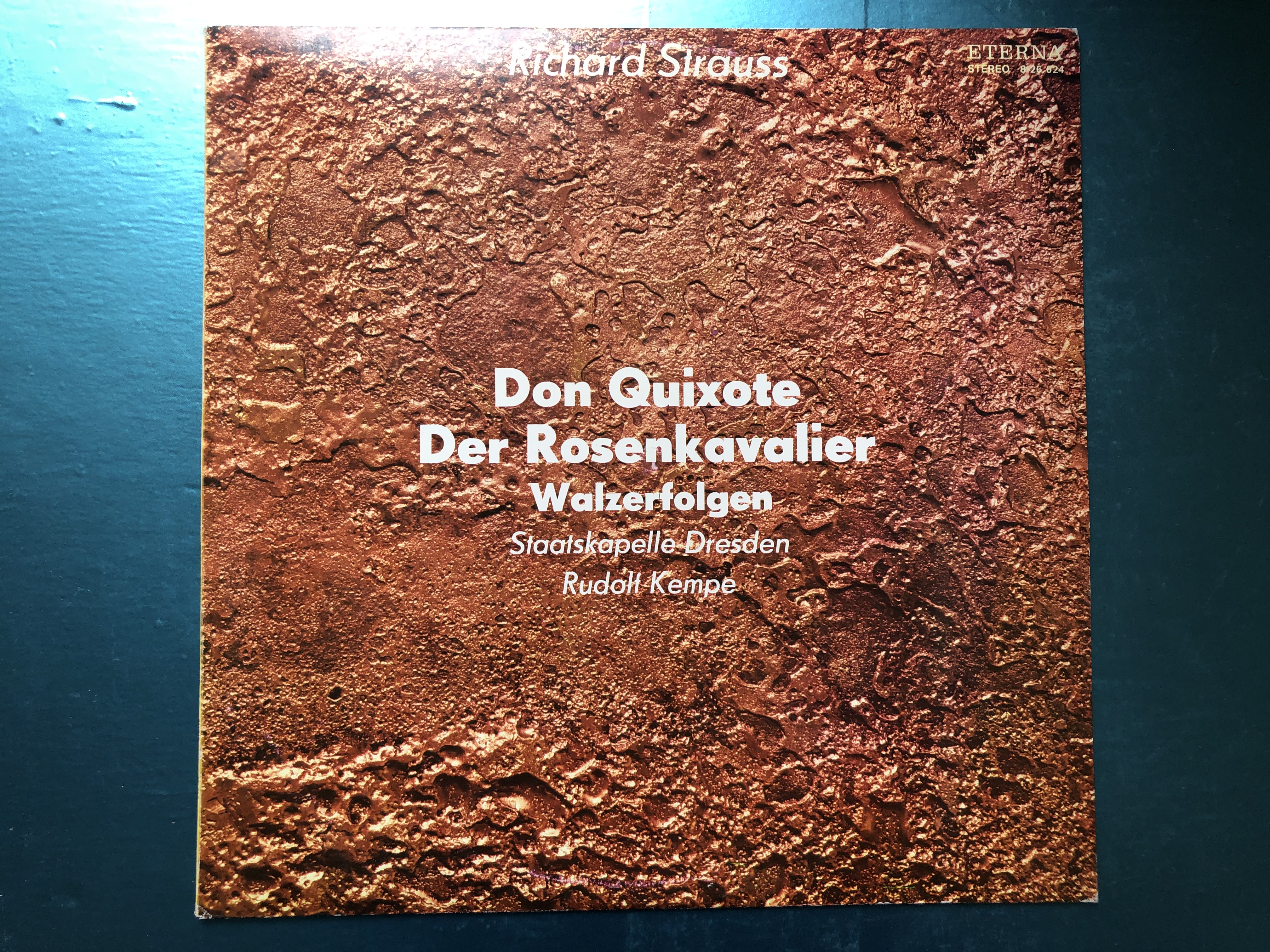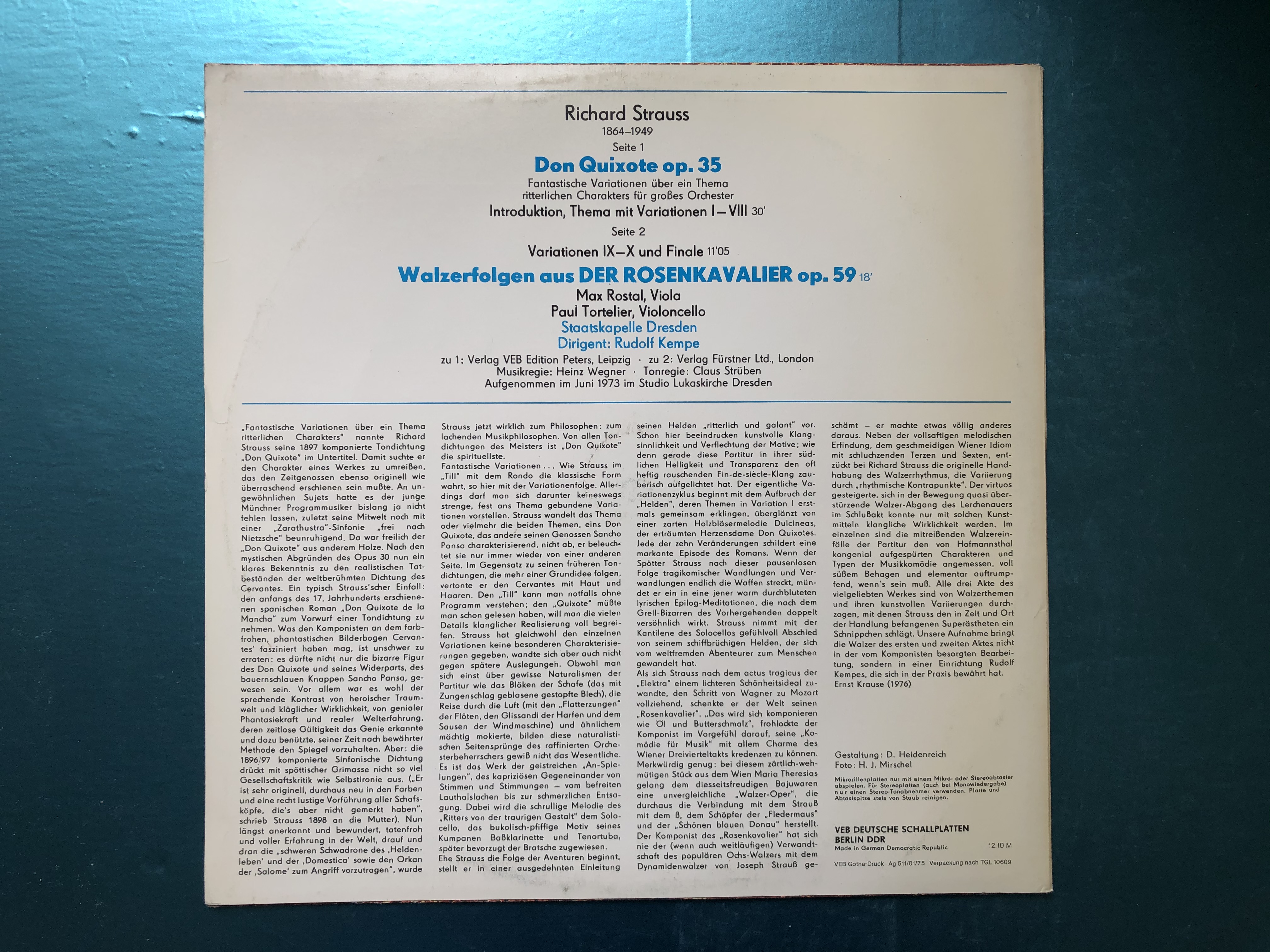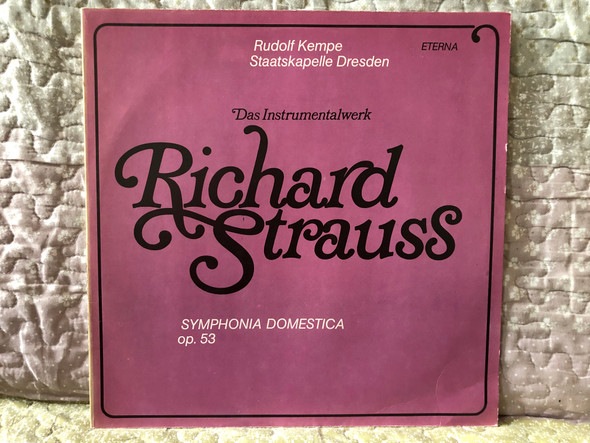Description
Richard Strauss - Don Quixote,Der Rosenkavalier - Walzerfolgen / Staatskapelle Dresden, Rudolf Kempe / ETERNA LP 1975 Stereo
8 26 624
Don Quixote, Op. 35 is a tone poem by Richard Strauss for cello, viola, and orchestra. Subtitled Phantastische Variationen über ein Thema ritterlichen Charakters (Fantastic Variations on a Theme of Knightly Character), the work is based on the novel Don Quixote de la Mancha by Miguel de Cervantes. Strauss composed this work in Munich in 1897. The premiere took place in Cologne on 8 March 1898, with Friedrich Grützmacher as the cello soloist and Franz Wüllner as the conductor.
The score is 45 minutes long and is written in theme and variations form, with the solo cello representing Don Quixote, and the solo viola, tenor tuba, and bass clarinet depicting his squire Sancho Panza. The second variation depicts an episode where Don Quixote encounters a herd of sheep and perceives them as an approaching army. Strauss uses dissonant flutter-tonguing in the brass to emulate the bleating of the sheep, an early instance of this extended technique. Strauss later quoted this passage in his music for Le bourgeois gentilhomme, at the moment a servant announces the dish of "leg of mutton in the Italian style". Graham Phipps has examined the structure of the work in terms of Arnold Schoenberg's ideas of 'surface harmonic logic' and 'developing variation'.
Der Rosenkavalier (The Knight of the Rose or The Rose-Bearer), Op. 59, is a comic opera in three acts by Richard Strauss to an original German libretto by Hugo von Hofmannsthal. It is loosely adapted from the novel Les amours du chevalier de Faublas by Louvet de Couvrai and Molière's comedy Monsieur de Pourceaugnac. It was first performed at the Königliches Opernhaus in Dresden on 26 January 1911 under the direction of Max Reinhardt, Ernst von Schuch conducting. Until the premiere, the working title was Ochs auf Lerchenau. (The choice of the name Ochs is not accidental, for in German "Ochs" means "ox", which describes the character of the Baron throughout the opera.)
The opera has four main characters: the aristocratic Marschallin; her very young lover, Count Octavian Rofrano; her brutish cousin Baron Ochs; and Ochs' prospective fiancée, Sophie von Faninal, the daughter of a rich bourgeois. At the Marschallin's suggestion, Octavian acts as Ochs' Rosenkavalier by presenting a ceremonial silver rose to Sophie. However, the young people fall in love on the spot, and soon devise a comic intrigue to extricate Sophie from her engagement. They accomplish this with help from the Marschallin, who then yields Octavian to the younger woman. Though a comic opera, the work incorporates some weighty themes (particularly through the Marschallin's character arc), including infidelity, aging, sexual predation, and selflessness in love (or the lack thereof).
Tracklist:
| Don Quixote, Op. 35
Viola – Max Rostal
Violoncello – Paul Tortelier
Viola – Max Rostal
Violoncello – Paul Tortelier
|
|||
| A | Introduktion, Thema Mit Variationen I–VIII | ||
| B1 | Variationen IX–X Und Finale | ||
| B2 | Walzerfolgen Aus Der Rosenkavalier Op. 59 |
- Composed By – Richard Strauss
- Conductor – Rudolf Kempe
- Engineer [Tonregie] – Claus Strüben
- Orchestra – Staatskapelle Dresden
- Recording Supervisor [Musikregie] – Heinz Wegner























